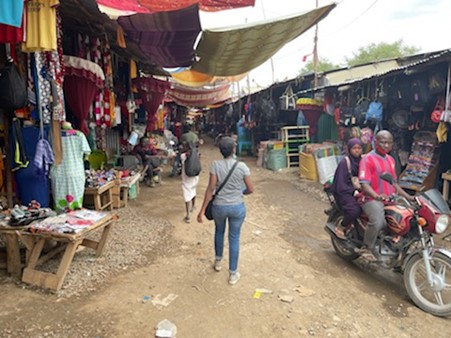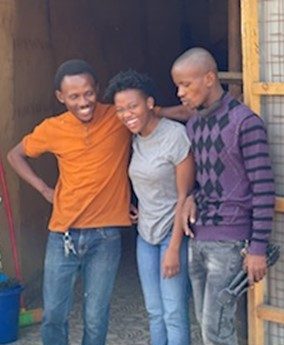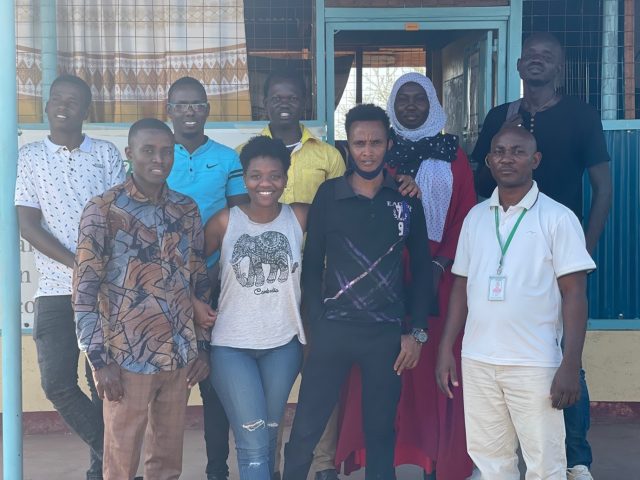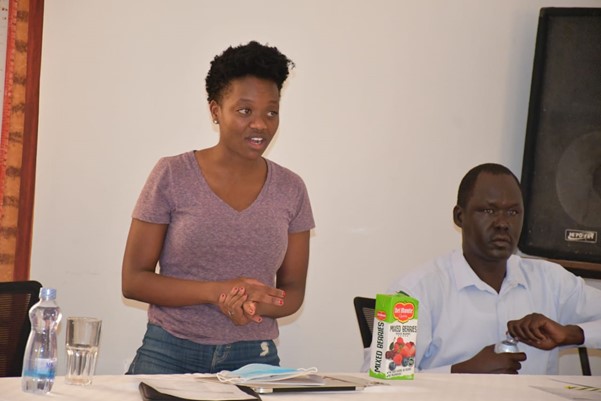Refugee youth in Kakuma Refugee camp embody the endurance of the human spirit.

A study carried out by the International Financial Corporation (IFC) in 2018 took a unique look at Kakuma Refugee Camp and its hosting environment from a market point of view, and measured its cumulative annual economic weight at $56 million a year, also noting that the camp’s private sector is comprised of approximately 2,500 businesses.
This camp is located in northwestern Kenya and was established in 1992 following the arrival of the “Lost Boys of Sudan.” Over the years the camp has seen an influx of refugees from other conflict-prone countries such as Somalia and as of July 2020 currently has a population of 196,666 registered refugees and asylum seekers.

Refugee youth in Kakuma Refugee camp embody the endurance of the human spirit. Despite the challenges of being displaced persons, they have leveraged on entrepreneurship as a way to self-reliance. However, the lack of affordable and sustainable financial services creates an enormous hurdle to self-reliance and economic independence.
My project as a CIPE Youth leader is an advocacy campaign to encourage stakeholders to create and foster an environment that allows for the financial inclusion of refugees, and vulnerable groups in the host community of Turkana-West. This project also aims to build awareness of the business potential for financial providers in serving refugees and the importance of advocating for a change in policy constraints for the financial inclusion of refugees.
Financial providers and other stakeholders are starting to become aware of the potential of this underserved market, but much of the work is still at an early phase. These efforts by stakeholders to accelerate financial inclusion of refugees are not sustainable without policy reform. Although Kenya has affirmed international instruments such the Global Compact for Refugees, proper documentation and the right to work for refugees is yet to be realized despite 20 years of hosting refugees. Financial inclusion provides a foundation to ensure that host communities get the support they need and that refugees can lead productive lives through market-oriented solutions. Without a change in government policy, financial inclusion cannot be resolved by interventions that are durable and sustainable.
Young refugees driven by necessity and limited employment opportunities leverage entrepreneurship to rebuild their lives, but the lack of access to capital represents a stumbling block on the way to business success.
During my project, I worked with the Global shapers of the Kakuma Hub housed by the World Economic Forum and Solidarity initiative for refugees, a refugee-led organization in Kakuma, to leverage the power of storytelling to showcase the role that financial inclusion plays in the humanitarian-development nexus of the host community and the refugee population.
I will showcase these inspiring entrepreneurship stories during my presentation at the CIPE Youth Leadership Conference on the September 28, 2021. Young refugees driven by necessity and limited employment opportunities leverage entrepreneurship to rebuild their lives, but the lack of access to capital represents a stumbling block on the way to business success. These stories make a case for a call to action for policy reform to accelerate efforts to financially include refugees in host community economies.
As part of our work to advocate for financial inclusion, the Global Shapers and I are working on the creation of a revolving fund as an innovative way to support 5 youth refugee entrepreneurs. This fund of $5,000 dollars will support each entrepreneur with $1,000 to expand their business. The funds to support this are donated by different private sector stakeholders that wish to support refugees to harness entrepreneurship to rebuild their lives. The fund will be managed by the global shapers, who have already received financial literacy training from non-profits working in Kakuma Refugee Camp.

With the support of the Turkana Chamber of Commerce, a strong advocate for the financial inclusion of refugees and other vulnerable groups in the host community, I participated in the chamber’s workshop with financial providers in the country to discuss innovative ways in which stakeholders could work to improve financial literacy and service.

During this workshop the chamber averred my sentiments that support and assistance to refugees should not be provided in isolation from development plans for the host population. As this helps to avoid situations in which the end of a humanitarian operation adversely affects the economy of the host community, with infrastructure lying bare and the seemingly robust economic activity developed around it comes to an end. The Turkana Chamber of Commerce has been an avid supporter and advocate of financial inclusion and I look forward to working with the chamber to push for policy reform, as this is the only durable solution to financial inclusion of forcedly displaced persons.
During the implementation of my project, I was constantly inspired by the sheer resilience of refugee entrepreneurs. For us to build a sustainable future for all and ensure no one is left behind, we must support the economic integration of forcedly displaced persons through financial inclusion.
Published Date: September 27, 2021
